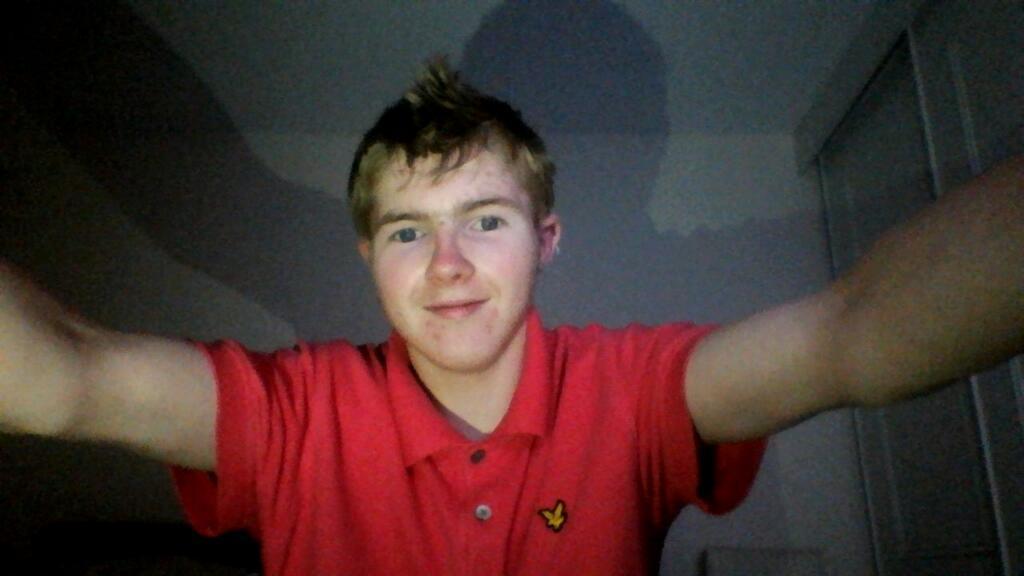'Sextortion' suspects deny involvement in Daniel Perry case
- Published
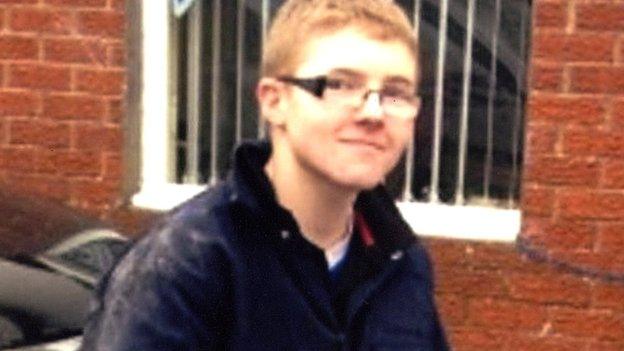
Daniel Perry died in a fall from the Forth Road Bridge in July 2013
Two Filipino men suspected of blackmailing a UK teenager who took his own life have been traced by the BBC.
Daniel Perry from Dunfermline was 17 when he fell from the Forth Bridge in July 2013.
He had been the victim of online sexual blackmail or "sextortion" by a group operating from the Philippines, after being duped into taking part in an explicit Skype chat.
When the BBC challenged the two suspects, both denied any involvement.
They were two of three suspects in the case arrested in Manila this year and are now, like the third suspect, out on bail.
Daniel believed he was talking to a girl his own age when he engaged in the conversation via Skype.
Interpol says this kind of crime is increasing, with "hundreds of thousands of victims".
Criminal gangs target men on social media, posing as young women.
Angus Crawford joins the Philippines police on a raid for sextortion suspects
They encourage their victims into sexual encounters via webcam and then blackmail them.
The gang in Daniel's case recorded him and then threatened to make the video public unless he paid them.
A BBC investigation has found Daniel received a message from his blackmailers saying, "I will make you suffer".
Begged
The Scottish teenager begged them not to carry out the threat but detectives claim the suspects replied: "Commit suicide now." Later they wrote: "Are you dead yet?"
Daniel then took his own life.
Archie Tolin, 20, Jomar Palacio, 23, and Vincent Bravo, 22, were arrested by Filipino police in May.
It was part of an operation called Strikeback supported by Interpol and officers from Police Scotland.
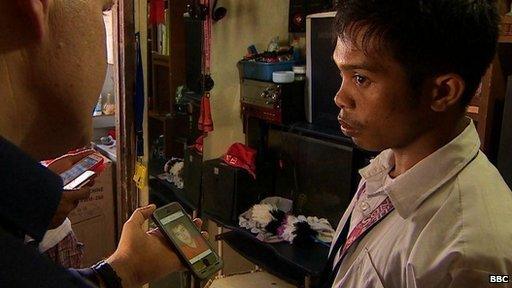
Suspect Jomar Palacio was shown a picture of Daniel Perry by the BBC
A BBC team traced two of the men suspected of being involved in Daniel's death.
Jomar Palacio lives in a run-down area of Manila.
We challenged him about his alleged role in the crime and showed him a photograph of Daniel.
"I do not know him, I did not get any money, I did not do anything wrong to him, that's all," he said.
Another suspect, Vincent Bravo, now works as a waiter in a strip club and lives in a city south of Manila.
"I didn't do it, I don't know anything about it. They have no hard evidence against us," he told the BBC.
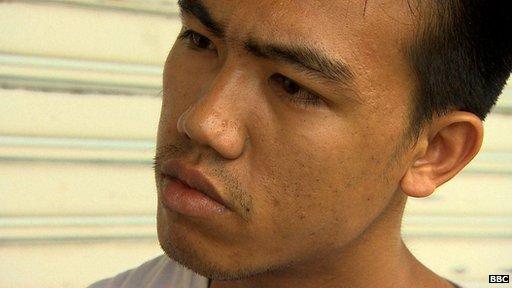
Suspect Vincent Bravo also claims he is innocent
"I send my condolences to [the Perry family], but I wasn't the one who did it. I feel sorry because he left behind a family which loves him."
Both men say they are innocent but Filipino police insist they will be prosecuted.
The suspects will go on trial in Manila but the Scottish authorities want to extradite them to face trial in the UK.
"They will first have to be tried in the Philippines and other legal actions might follow," said Senior Superintendent Gilbert Sosa, director of the Filipino Anti-Cybercrime Group (ACG).
"They will have to serve prison or any verdict entered into by the court."
Wayne May of support group Scam Survivors demonstrates how victims get drawn in
Too embarrassed
Only then could they be considered for extradition, but justice in the Philippines is notoriously slow and it could be years before the suspects actually face trial.
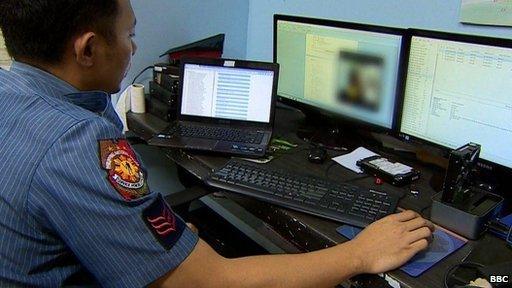
Police find sextortion material on a hard drive in a forensics lab
The authorities are struggling to cope with the sheer scale of sextortion activity.
Internet access is cheap and easy even in the poorest areas of the Philippines and the police know of thousands of victims.
Many are too embarrassed to come forward.
In the police forensic lab, officers analyse seized computers for evidence.
One officer, Jocar Samenian, says the problem is "rampant in the Philippines". He says victims may initially be asked for as much as £3,000 ($4,700).
In one recent case, he says, a gang leader made £1.5m ($2.3m) in 10 months.
Mr Samenian also warns that the blackmail doesn't stop after payment.
"As long as they can extort money from you, it will not end," he says.

Victim's story
John was blackmailed in August this year.
"I went on Facebook and she said 'add me on Skype' so I added her on Skype and she then said: 'Let's do webcam and I'll get naked for you.'
She said she'd tell my family and friends, tell my daughter, tell my wife - you know, ruin your life, ruin your family.
I was very frightened - just the thought of them seeing that was really terrifying.
I feel like telling everyone about it… it happens to a lot of people.
It's just a big scam… as soon as they delete one account they set up another. They target young men who are impressionable, who see a good looking young woman. They'll add her to their account. A lot of men will.
I understood what [Daniel Perry] was going through, I really did. Just the thought of people seeing, of your close family and friends seeing that video, it just terrifies you. I can see why he did what he did."
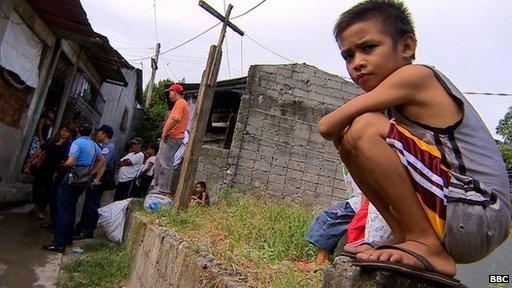
Police say this slum near Manila is a base for sextortion gangs

Sextortionist's story
Rosa worked in 'sextortion', but claims to have stopped.
"It is trying to find some clients from abroad, and then trying to seduce them. And then we video them.
I did it for only about a month. Life was hard for me before - we saw others earning money so we were encouraged to join, we were curious how they were doing it, we were curious how much money they earned from it. Because I'm a single mother I wanted to do it.
I didn't stay long, it was hard for me. I'm not used to doing bad things. My conscience got to me, because some of them [the victims] were begging, some didn't have any money.
I was scared because I was involved in this. I was ashamed."
- Published21 October 2014

- Published2 May 2014
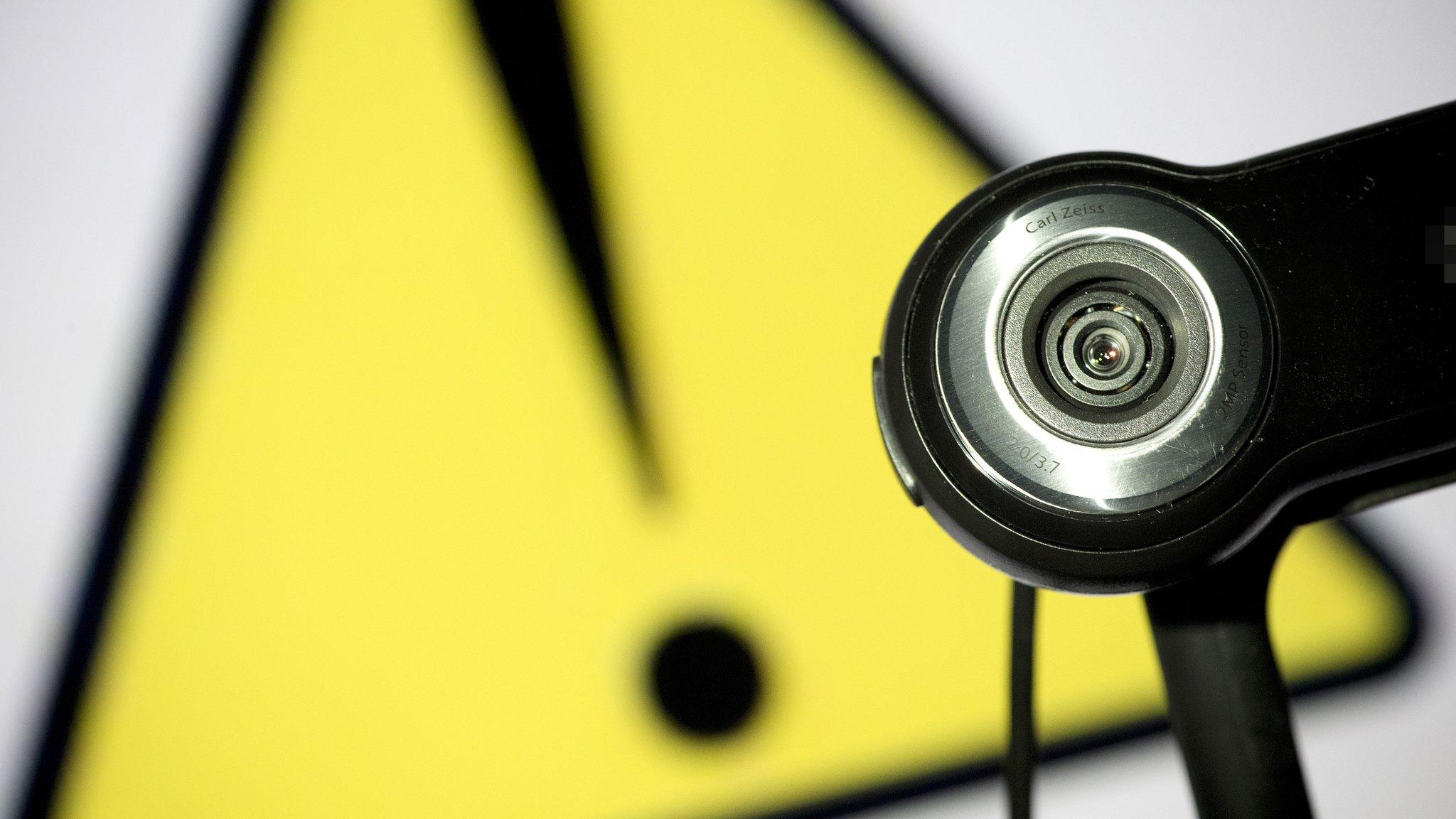
- Published2 May 2014
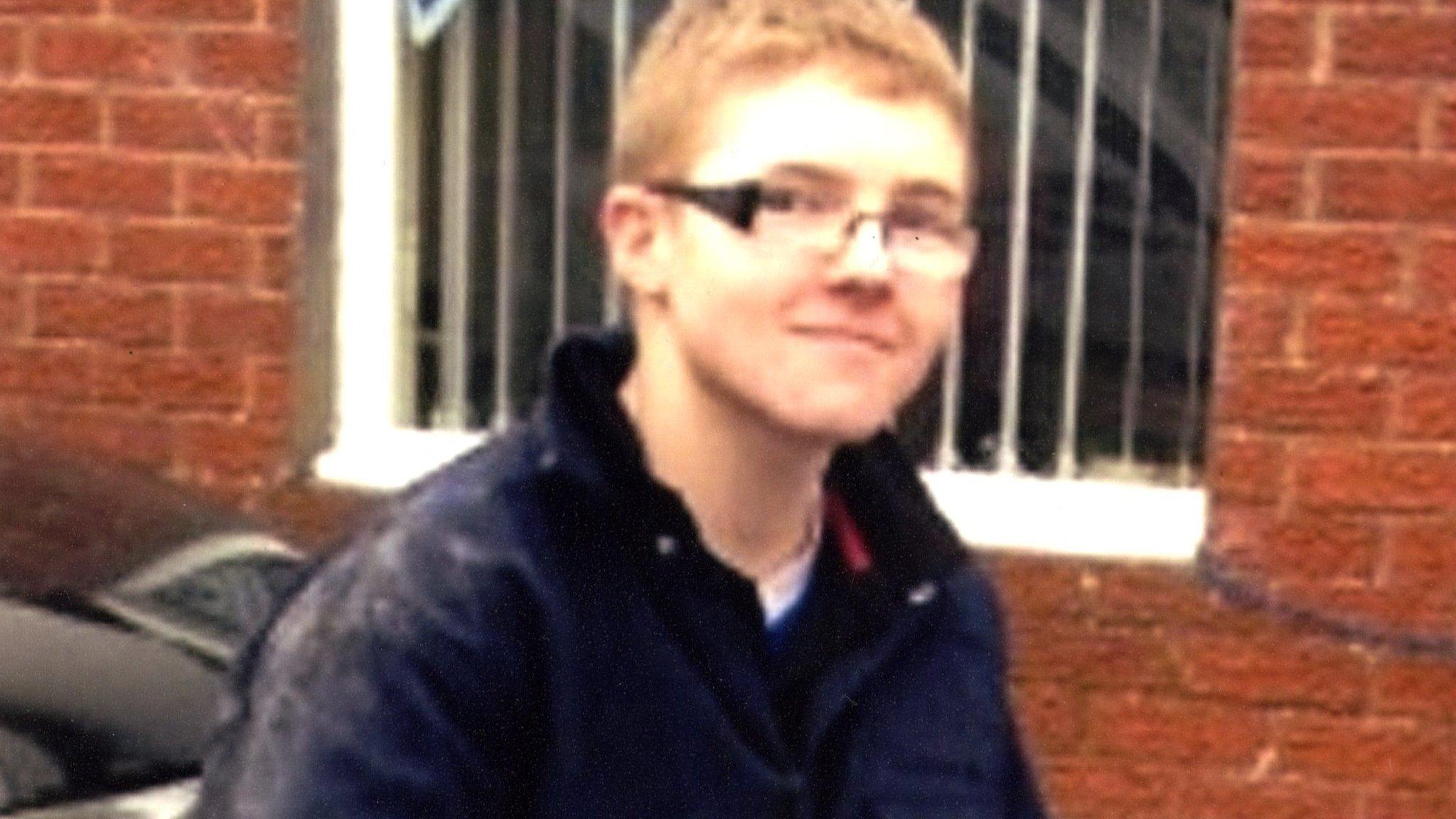
- Published17 August 2013
